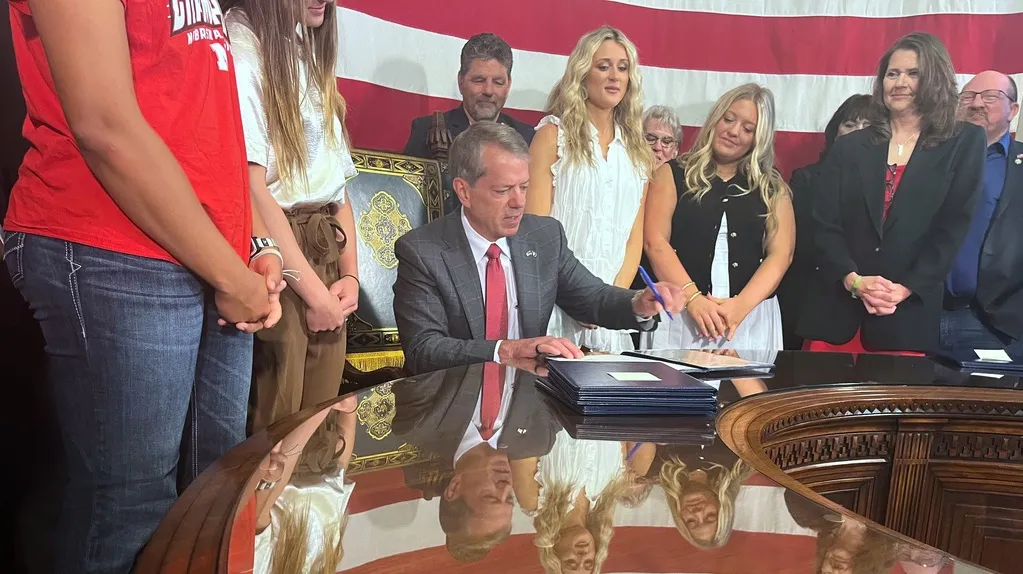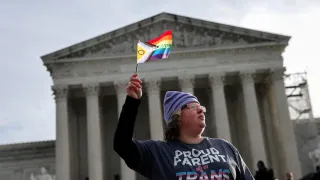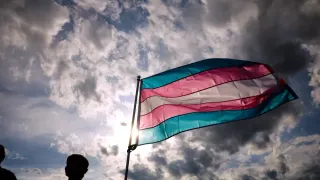July 8, 2015
West Virginia Adjusts License Policy for Transgender People
Jason St. Amand READ TIME: 3 MIN.
West Virginia is now letting transgender people more easily change their gender on their driver's licenses and wear makeup and other accessories while taking license photos.
The switch follows a similar change to the license photo policy in South Carolina, where motorists can now dress how they identify themselves in their licenses. That state's adjustment was required by a lawsuit settled in April.
West Virginia joins a growing number of states that have stopped requiring proof of completed gender change surgery, a court order or an amended birth certificate to switch genders on driver's licenses.
Nationally, 15 states still require proof of surgery, a court order or a birth certificate, while four have unclear or unknown policies, said Arli Christian, National Center for Transgender Equality state policy council. Almost all of the rest require a health professional's signature, with some requiring that the doctor attest to the patient's ongoing gender change treatment.
On July 1, the West Virginia Division of Motor Vehicles issued a new policy prohibiting its employees from asking anyone to remove makeup, clothing, hair styles, hairpieces or accessories as long as they are not obstructing biometric face and neck features required for the license photo.
The policy was adjusted "to reflect changes in our current society," said DMV spokeswoman Natalie Holcomb.
"The West Virginia Division of Motor Vehicles is committed to providing the best customer service possible, which can include adapting to the changing needs of our customers and modifying policy and procedure, within reason and the law," Holcomb said.
And last month, the state DMV began allowing gender changes on licenses with a physician's signature. The physician also has to fill out a box on a form that says: "In my professional opinion, the applicant's gender identity is ... "
Previously, West Virginia required a circuit court judge's order acknowledging that a person has completed gender change procedures.
In separate instances at different West Virginia DMVs last year, two transgender women were told to remove makeup, jewelry and wigs for license photos last year.
Kristen Skinner, 45, left a Division of Motor Vehicles office in Charles Town with a license featuring her new female name and a headshot she says looks nothing like her.
Trudy Kitzmiller, 53, described a similar experience in May at the Martinsburg office. Disappointed, she left without a new license and kept her old one with the wrong name and an inaccurate photo.
In both cases, the two who were transitioning from male to female and say they were belittled and called names.
Skinner said she will soon begin efforts to obtain a new license.
"What they've done is, more or less, modernize to what a lot of other places are doing," said Skinner. "The trend is moving toward ID as representing who you are, not somebody else's idea."
The Transgender Legal Defense & Education Fund said in a news release that West Virginia changed its policy amid the threat of legal action.
The fund had represented the female transgender teen in South Carolina who sued the DMV after she was told to take off her makeup. Part of a settlement in the case of 17-year-old Chase Culpepper required South Carolina to let people wear wigs, makeup and similar accessories to take a license photo.
South Carolina still requires a court order to change genders on a license.
Legal action also spurred Alaska to change one of its policies in 2012. Alaska now requires a health provider's signature for a gender change after the American Civil Liberties Union sued on behalf of a transgender woman. The new form also requires the doctor to say the person has had treatment for the change, and the change is expected to be permanent.
Similar changes have also occurred at the federal level. In 2013, the Social Security Administration dropped a proof-of-surgery requirement to change people's genders in its records.
In 2010, the State Department similarly removed the requirement for gender changes on passports. The U.S. Citizenship and Immigration Services did the same for green cards in 2012.







